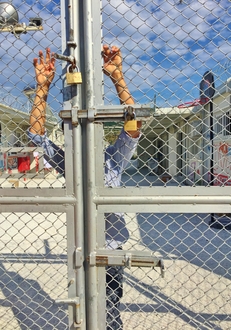-
Help to provide more funding towards our homeless charities in scotlandWe sit in our lovely warm homes every night. We see on our tvs every night about the poor refugees at calais. However we have a huge homeless problem in our towns and cities, it is just not being reported. If you go into any town or city after dark you can see prople bedding down for the night in shop doorways, in alleys etc. You can help to make there lives a bit better if you sign this petition. Please remember homelessness can happen to any one. Your signature can save peoples lives. So sign and support a great cause thank you.3 of 100 SignaturesCreated by Paul Coyle
-
Ban BPA in our food packagingScientific evidence links our routine exposure to BPA to a range of diseases, including breast cancer. Scientific studies have found that an important route of exposure to BPA is via our food and drink. BPA leaches from the packaging and into the products, especially when they are scratched or heated during cooking and in the dishwasher. As diet continues to be our main route of exposure to BPA, lets call for it to be removed from all food and drinks packaging and replaced with safer alternatives.46 of 100 SignaturesCreated by Sam Whalen
-
Stop CCG's limiting IVF on the NHS against NICE guidelinesPeople who are desperate to start a family are being given the choice of either going without or having to spend their life savings (or going into serious debt) to make their dreams come true. When unfit parents are allowed to produce child after child supported by the government, people who would make great parents aren't even given a chance.29 of 100 SignaturesCreated by Jessica Smith
-
Free Lipreading training for all hard of hearing peopleBecause this is a life skill which would enable them to live full lives post hearing loss. It could help to prevent social isolation and the onset of dementia.59 of 100 SignaturesCreated by Andrea Curtis
-
On your bikeThere is Way to much traffic constantly polluting Brighton with fumes and the noise level is deafening all day and night.10 of 100 SignaturesCreated by Shirley Cripps
-
Protection from GM crops in our food chainGM crops are a monopoly. They are heavily contaminated with pesticides either as part of the genetic make up or as a result of pesticide sprays which cannot be washed off. They have an effect on pollinating bees, on the livestock that eat them eg soy for pigs and ultimately on human health either for the people that live in proximity to where the crops are sprayed and for the people that consume the animals fed on the crops or the produce itself. There is some evidence to suggest that the rise of gluten intolerance is due to pesticide residues and genetic alterations in wheat.5 of 100 SignaturesCreated by liz mcallister
-
Broadcast 'I, Daniel Blake' on BBC One ASAP'I, Daniel Blake' is the most important British film of this millennium, highlighting many pressing issues such as - the absurd inhumanity of benefits bureaucracy - how revenge evictions can have disastrous knock-on effects - how the housing crisis impacts many children's educations and upbringings by forcing them to change schools - the shameful prevalence of food bank dependency, and - how some single mothers are forced into sex work through sheer desperation the film should be mandatory viewing for anyone who cares at all about the plight of their neighbour. 'Cathy Come Home' made a huge impact 50 years ago by igniting public consciousness of homelessness, ultimately leading to the creation of Crisis. it was able to have such a profound effect because it was broadcast to the nation on BBC1; it is imperative that Loach's final film be given the same platform today with over 3,500 people sleeping rough, over 73,000 homeless households living in temporary accommodation (of which more than 20,000 were forced to relocate), and more than 1.1 million three-day food supplies given out last year by Trussell Trust food banks alone, our country is truly in crisis as TV licensees, we demand that the BBC plays its part in highlighting the severity of the situation, by acquiring the rights to broadcast 'I, Daniel Blake' at the earliest possible oppportunity3,016 of 4,000 SignaturesCreated by Patrick Elliot
-
Stop DVLA Revealing confidential information to private companies.Data protection. Private companies or individuals should under no circumstances have the right to access any information held by a government organisation. The main purpose of this, to issue illegal fines and intimidating people by threatening to send in bailiffs if they don't pay. This practice is sailing close to the legal wind and these company's would not exist without the help of the DVLA.5 of 100 SignaturesCreated by John Bissell
-
Switch to paper cotton budsPlastic cotton bud stems are the number one item of plastic, sewage-related debris on our beaches and rivers [1] - yet retailers could help prevent this by switching the stick from plastic to paper. In the marine environment, plastics can be eaten by marine life, often with fatal consequences. Plastic is found in the stomachs of Loggerhead Turtles, Seabirds and many species of UK-caught fish. And pieces that don't get eaten break down into microplastics, forming part of a dangerous plastic smog in our seas. Retailers are listening - earlier this year, Waitrose and Johnson & Johnson announced they'd make the change to paper, and the Coop and Marks and Spencers sell paper-stem buds. Now we need to make sure the others do the same. Tesco, Sainsburys, Boots, ASDA, Morrisons, Lidl, Aldi, Superdrug and Wilko are currently reviewing their policies on cotton buds ... which is why we need to show them how many of us support the switch to paper! Even paper stem cotton buds shouldn’t be flushed down the loo. But if they are, they're less likely to pass through sewage filters and will quickly biodegrade if they escape. So please sign and share our petition to ask the remaining retailers to Switch the Stick from plastic to paper. Your voice will be heard! Thanks, Natalie and the City to Sea Team [1] Beachwatch Report 2015, Marine Conservation Society158,978 of 200,000 SignaturesCreated by Natalie Fée

-
HORWICH SAYS NO TO POWER PLANTBolton Environmental Health has said that these generators will cause a 'substantial adverse affect' on our air quality. The nearest houses are 10 metres away. We owe it to the many children who live here who deserve to breathe clean air. 40,000 people each year die from poor air quality.439 of 500 SignaturesCreated by Zoe Hames
-
Urge the Children's Commissioner to investigate the news portrayal of refugee childrenLike the vast majority of this country we are dismayed in the extreme to witness the way certain newspapers have reported the arrival of unaccompanied asylum-seeking children from Calais. Far from portraying this as a compassionate and humanitarian response, (not to mention a legal obligation), children have been identified, vilified and impugned by some politicians and parts of the media, much more intent on continuing the increasingly hostile anti-migrant agenda at large during and after the referendum, than treating children with the care and respect for their privacy and their childhoods that they are fully entitled to. The publication of children’s images, no doubt without their informed consent, with disregard for the Independent Press Standards Office Editors’ Code and other media guidelines published by the likes of UNICEF is most harmful and creates a serious risk to these and all other asylum seeking and migrant children. By exposing their images across a global media it puts children and their families at risk of identification by those who would persecute them, it undermines their ability to integrate in the country that is providing them with sanctuary and accuses them of being liars and cheats by pretending to be adults. Age assessment policies and procedures are well established in the UK and have been the subject of much judicial scrutiny all the way to the Supreme Court concerning the practice, accuracy and utility of age assessment methods including those such as dental X-Ray. Sections of the media have chosen to ignore the many sources of detailed information about these controversial practices and instead reached a peremptory conclusion using a crude visual appearance test, long dismissed by the courts as inadequate and inappropriate to serve their own sensationalist ends. The climate of hostility and damaging, negative news stories about asylum seeking children must stop. When a football celebrity expresses his horror at the attitudes at large in certain sections of society and on social media and is in turn vilified for showing compassion for refugee children something has gone terribly wrong. Our media as a whole shares a very high degree of responsibility for creating this dangerous climate. As more children arrive in the UK in the weeks and months ahead, including those under the so called ‘Dubs Amendment’ scheme, we call upon The Children’s Commissioner for England, using the powers invested in her Office under Part 6 of The Children and Families Act 2014, to investigate the UK’s print, audio, visual and digital media’s conduct in relation to these children’s arrival, to examine how and to what extent children’s individual and collective rights have been violated and to report publicly on how the media regulators should strengthen and enforce measures to protect all children’s rights in their work and in their regulatory frameworks. At present the so called ‘independent’ press regulator lacks statutory powers and is constrained by a narrow code of conduct for its complaints framework. This does not meet the interests of children in a way that is consistent with the UN Convention on the Rights of the Child. This is both urgent and long term work. Urgent in sending out a clear message about what is and is not acceptable in how children are represented as a group and individually across our media and long term in establishing a culture of responsible journalism about children and the promotion of their rights. Freedom of expression of our media is a vital pillar of accountability. Protection of children, their rights and interests is not subordinate to that function but equal to it. That means for all children, all of the time.852 of 1,000 SignaturesCreated by Syd Bolton
-
Forfeiture of Academic Honorary FellowshipsThese people have been found to have taken part in the cover-up of Hillsborough by the courts. Therefore they are no longer worthy to hold a fellowship. They have been found to be dishonest and untrustworthy. Characteristics that should not be seen to be rewarded with such honors. This is one more step for justice for the 96 and their families.105 of 200 SignaturesCreated by UNISON Liverpool John Moores University

Hello! We use cookies to improve your experience by providing insights into how the site is being used. Find out more.








.jpg)



